Interview Feature: Why Companies Are Betting Big on Generative AI
AI is reshaping healthcare and enterprise productivity, delivering real ROI and smart scaling.


ABOUT THE PODCAST. Every day, business scholars answer pressing questions in their research - but what do their insights mean for you? In this podcast, Wharton faculty dive into what inspired their studies and how their findings resonate with the world today. Learn how research insights translate into knowledge you can use, with host Dan Loney. Watch the full podcast here.
The enterprise shift toward Generative AI isn’t a trend—it’s a measurable transformation. As Wharton professor Stefano Puntoni emphasized throughout the interview, senior leaders aren’t just experimenting anymore; they’re reporting real value, real productivity gains, and real competitive pressure. And this executive “pulse check” offers a rare, inside look into how AI in Business is unfolding today, setting the stage for deeper insight into where the ROI is coming from and what challenges companies are facing next.
Why Most Enterprise Chatbot Projects Fail Before They Begin. Read more here!
Positive ROI Is Already Here
What makes Puntoni’s research stand out is its consistency across three years of data. Despite the public’s skepticism, three out of four companies measuring ROI report moderately to significantly positive results. Executives highlight that areas like marketing, customer service, and general office work are where Generative AI has delivered the fastest wins—speeding up routine tasks and cutting execution time by large margins.
Key data points:
- 74% of companies measuring ROI for generative AI report positive returns.
- In a broad survey, 72% of companies say they measure ROI and ~75 % of those report business gains.
- Additional data: One study by SAP found that 79% of companies expect their AI investments to pay off within three years.
Puntoni captures it well: “The vibe is good. The vibe is that this technology is delivering positive results.”
This optimistic sentiment directly contrasts with widespread fears that AI is overhyped or underdelivering. Companies are discovering that AI Technological Advancements—especially large language models—align closely with bottlenecks in their workflows, which naturally leads into one of the most misunderstood topics: AI’s impact on jobs.
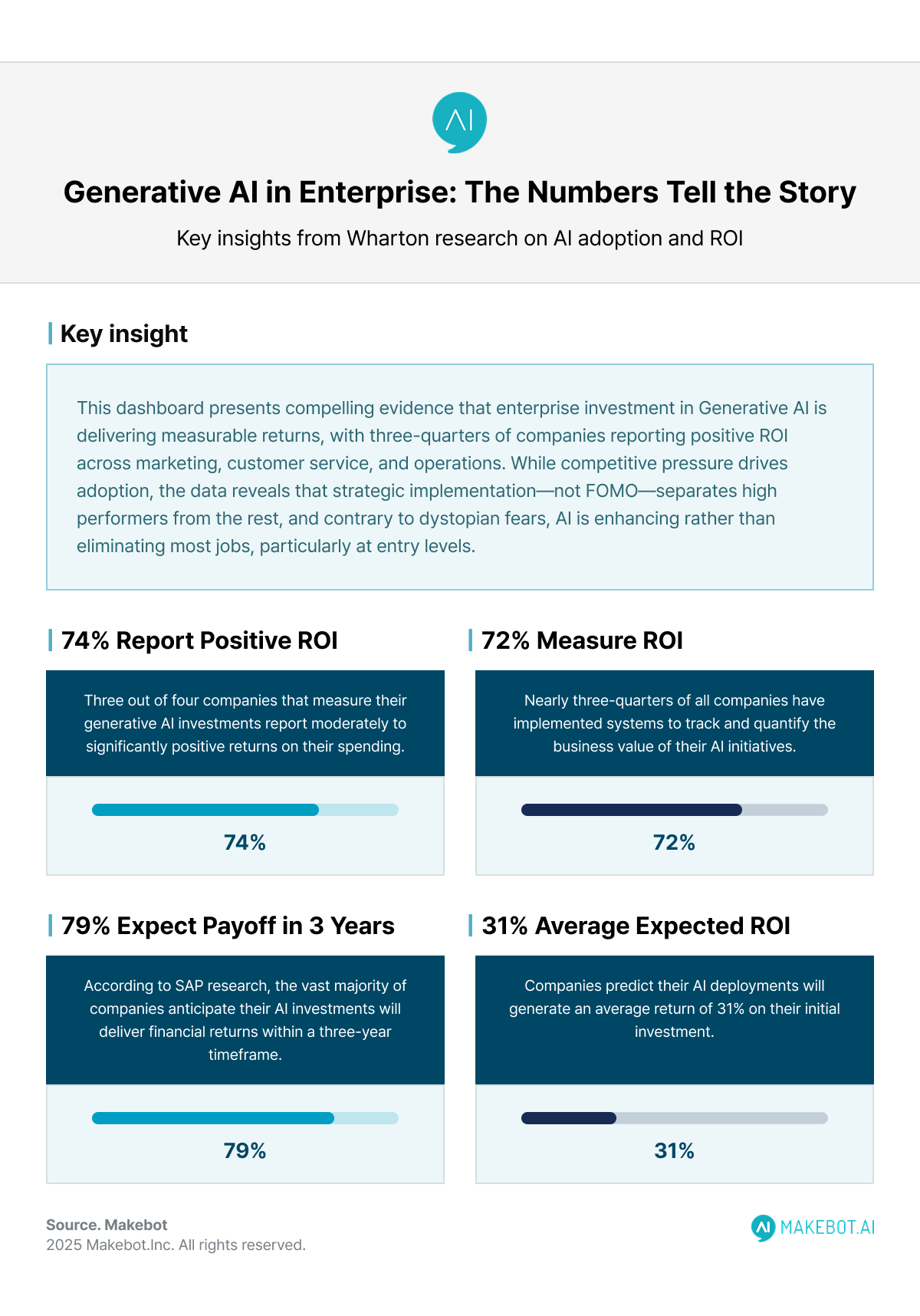
AI Won’t Replace Most Workers
The public conversation about AI and labor quickly drifts toward scenarios involving “Terminator or The Matrix,” as Puntoni jokes. But executives see something different. They overwhelmingly believe that AI Implementation will enhance rather than eliminate roles. In particular, they note that while junior employees will face the most disruption, they will also experience the most opportunity.
Puntoni explains this nuance clearly:
- Entry-level positions “do the work,” so they’ll feel AI’s impact first.
- Negative effects and positive effects fall disproportionately on junior roles.
- The net impact is not as negative as most people assume.
Data points & context:
- According to a separate global survey by McKinsey & Company, a median of 17% of respondents reported a reduction of 3 % or more of workforce size due to AI in the past year—but 30 % expect such reductions over the next year.
- The survey also found that fewer than 20 % actually saw decreases of 3 %+ in their functional workforce size; many still expect more changes ahead.
This duality matters. As the professor states, “It’s a disruptive technology… but that doesn’t mean the jobs are going to disappear.”
These changes in workforce dynamics naturally tie into why companies are investing so heavily and whether this shift is being driven by genuine business value—or simply by competitive pressure.
Competitive FOMO Is Real
Executives admit something candid: “There’s a lot of FOMO.” Many companies are accelerating investments in AI Development because they don’t want to look outdated or slower than their peers. But Puntoni warns against following the crowd blindly. Herd mentality doesn’t build durable value.
Instead, the companies getting the strongest returns are those asking the right question: How do AI’s capabilities align with what we can uniquely improve in our business?
Here are the numbers backing this sentiment:
- A study by SAP found 31% average return on investment (ROI) expectations for AI deployments.
- Another report indicates that among “AI high performers,” over one-third of their digital budgets are allocated to AI technologies.
Firms that adopt reactively risk shallow implementations, while firms that adopt strategically are aligning AI with targeted outcomes in marketing, workflows, research, and customer interactions. And this leads to one of the most striking results from the study: the impact of AI in Business is not localized to a single function—it’s broad and enterprise-wide.
Generative AI Is Producing Broad, Not Narrow, Business Impact
One section of the research focuses on use cases, and executives report progress across nearly all of them. Marketing, content creation, customer service, office automation, and research workflows are evolving faster than anticipated. Puntoni highlights this directly: “It’s not hyped, it’s real… and it’s going to have a major impact on every function.”
This broad adoption reflects how AI Technological Advancements have made AI more flexible, multimodal, and capable of plugging into multiple operational layers. But the real insight comes not from where companies are succeeding—but where they’re struggling. And surprisingly, it’s not the technology that is slowing them down.
This sets the stage for the next major finding: the real bottleneck is human capital.
The Questions That Will Build the Next Generation of AI Founders. Read here!
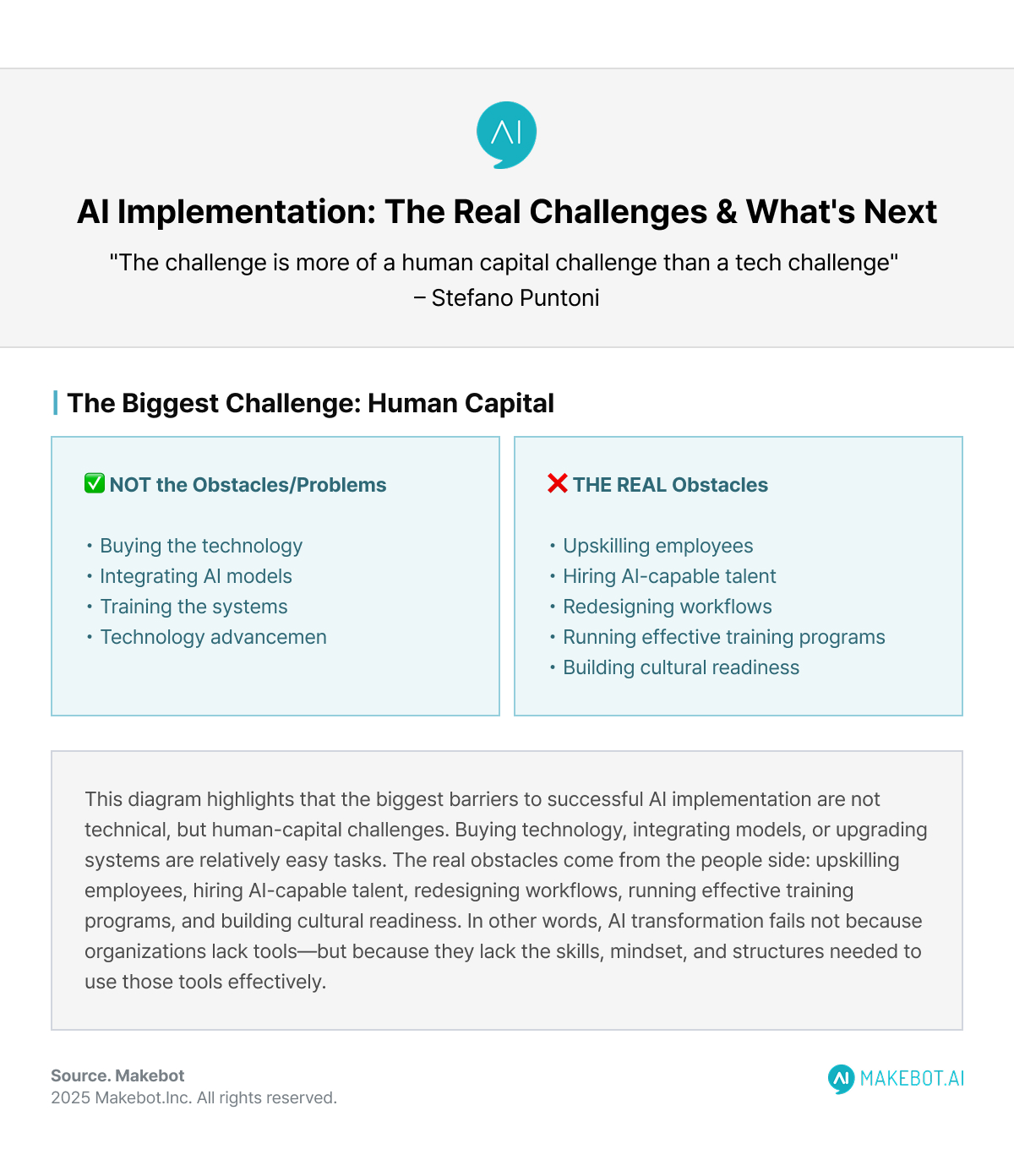
The Biggest Challenge
Puntoni couldn’t be clearer: “The challenge is more of a human capital challenge than a tech challenge.”
Companies report that the hardest parts of AI Implementation aren’t:
- Buying the tech
- Integrating models
- Training the systems
Instead, the obstacles are:
- Upskilling employees
- Hiring AI-capable talent
- Redesigning workflows
- Running training programs that actually work
- Building cultural readiness
Leaders say the technology is advancing quickly—but people, processes, and organizational habits are not. This mismatch emphasizes that successful AI in Business adoption requires more than technical tools; it requires strategic, structured change management. And that brings us toward the near-term future of AI in the enterprise landscape.
The Next 24 Months Will Define Winners
Puntoni avoids long-term predictions, saying, “I never make predictions beyond 24 months.” But within that window, the direction is clear:
- Companies will increase their investments.
- AI will penetrate deeper into workflows.
- Human capital challenges will intensify.
- Early adopters with strong strategic alignment will widen their lead.
The story isn’t about distant speculation—it’s about the immediate path companies are walking today. And this path is shaped by one core insight: success with Generative AI will favor those who invest not just in models, but in the people and structures required to use them effectively.
This brings the journey full circle to what the interview reveals most powerfully: enterprise AI success is no longer theoretical—it’s happening now, and it’s unfolding unevenly across organizations based on leadership decisions and implementation maturity.
Conclusion
Puntoni’s insights deliver a message that every company needs to hear:
- The ROI is real.
- The impact is broad.
- Most workers will be augmented, not replaced.
- AI investments are accelerating due to both opportunity and competitive FOMO.
- The hardest part isn’t technology—it’s people.
The companies betting big on Generative AI are not simply deploying tools. They’re redesigning their operating models, elevating workforce capabilities, and treating AI as a core driver of competitive advantage.
In the end, AI Technological Advancements give companies the power— but AI Implementation determines whether that power turns into business value.
Showcasing Korea’s AI Innovation: Makebot’s HybridRAG Framework Presented at SIGIR 2025 in Italy. More here!
Makebot: Turning AI Potential Into Real Enterprise Performance
As companies accelerate Generative AI adoption and face the human-capital challenges highlighted in the article, Makebot provides the missing link—AI solutions designed not just to deploy, but to deliver measurable business outcomes. Our industry-specific LLM agents, used by leaders like Seoul National University Hospital and Gangnam Severance Hospital, help organizations upgrade workflows, automate routine processes, and scale AI without overwhelming their teams.
Backed by innovations like HybridRAG—showing a 26.6% accuracy boost and up to 90% cost reduction—Makebot enables enterprises to move confidently from experimentation to execution. Whether you’re enhancing customer service, modernizing knowledge operations, or accelerating internal productivity, Makebot transforms AI strategy into real-world ROI.
👉 www.makebot.ai | 📩 b2b@makebot.ai



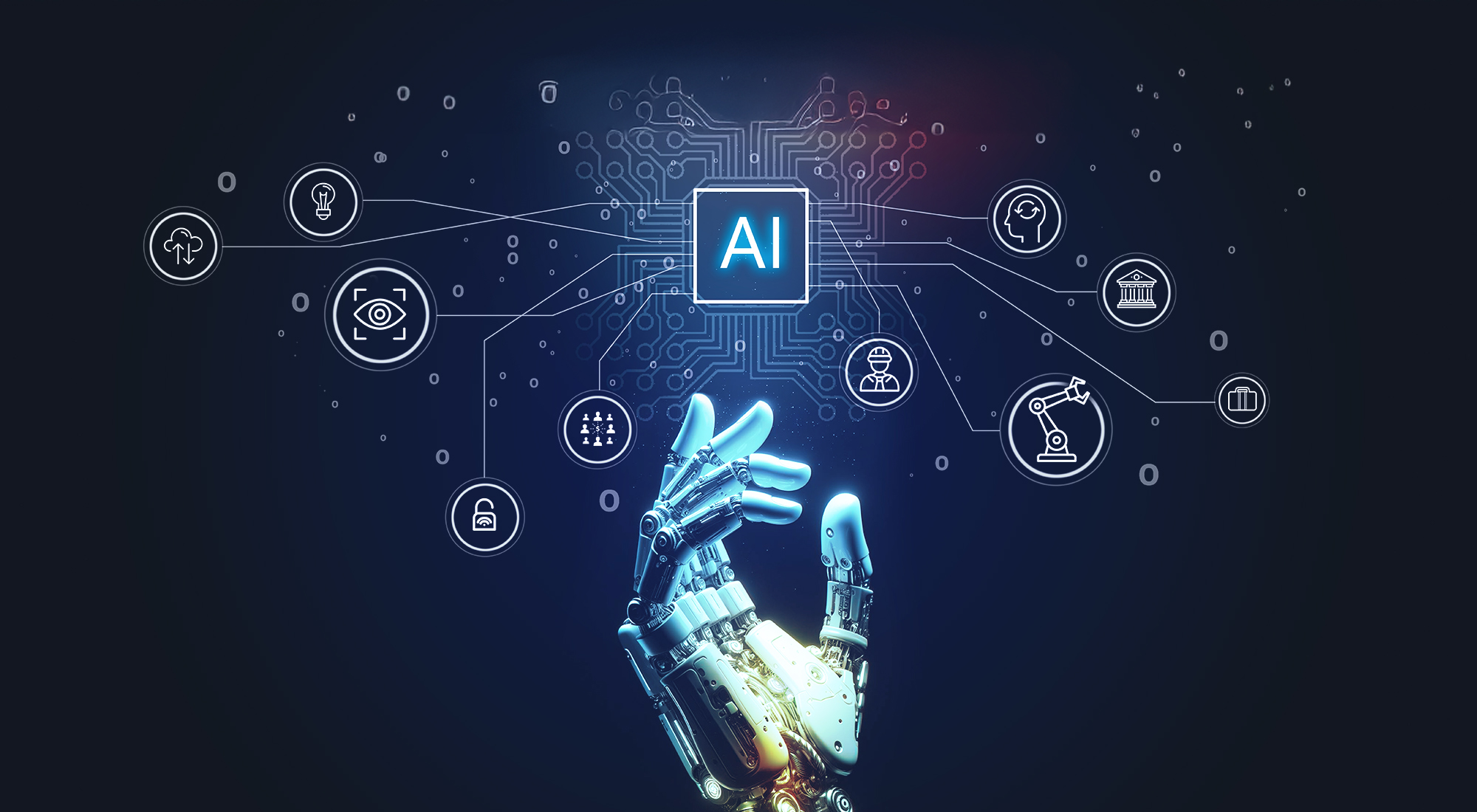

.jpg)

.png)
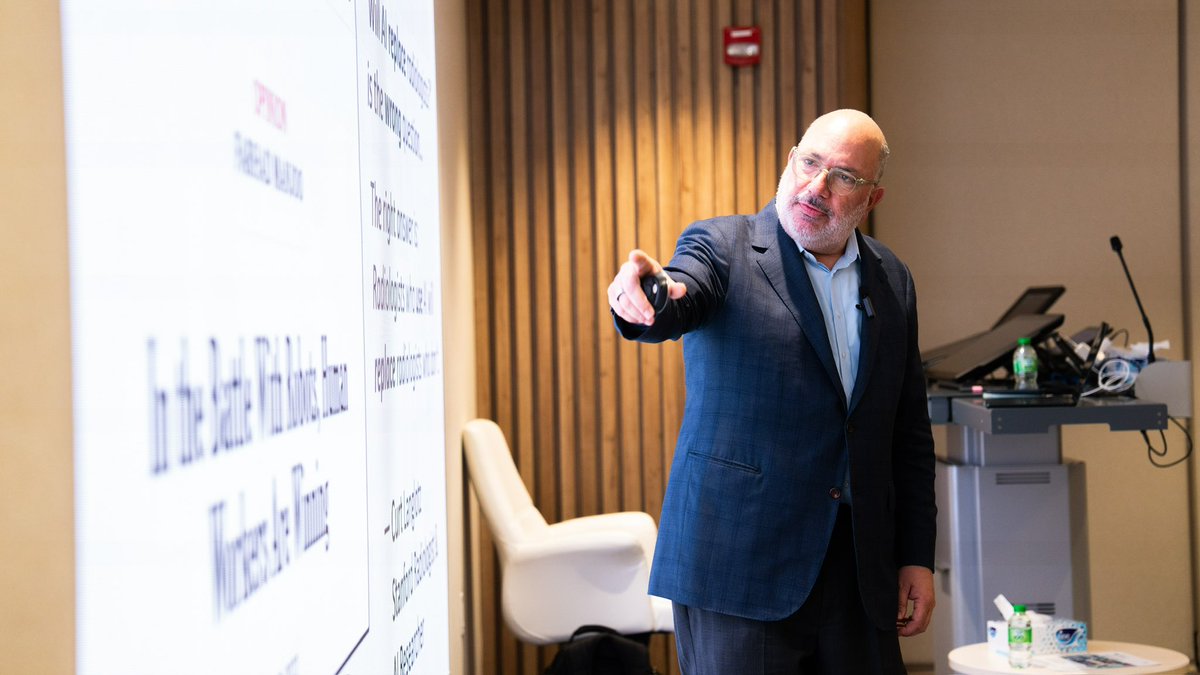





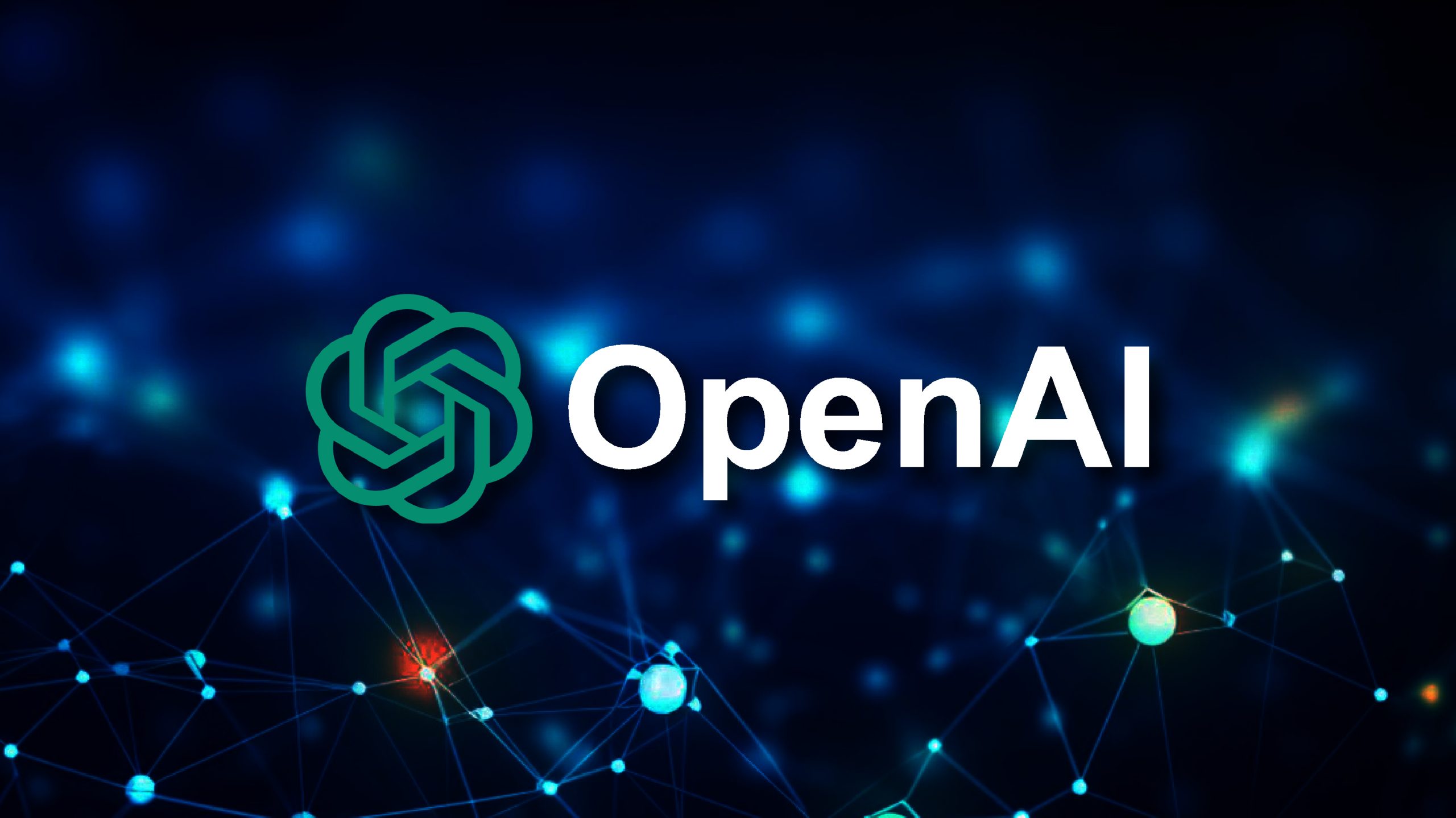



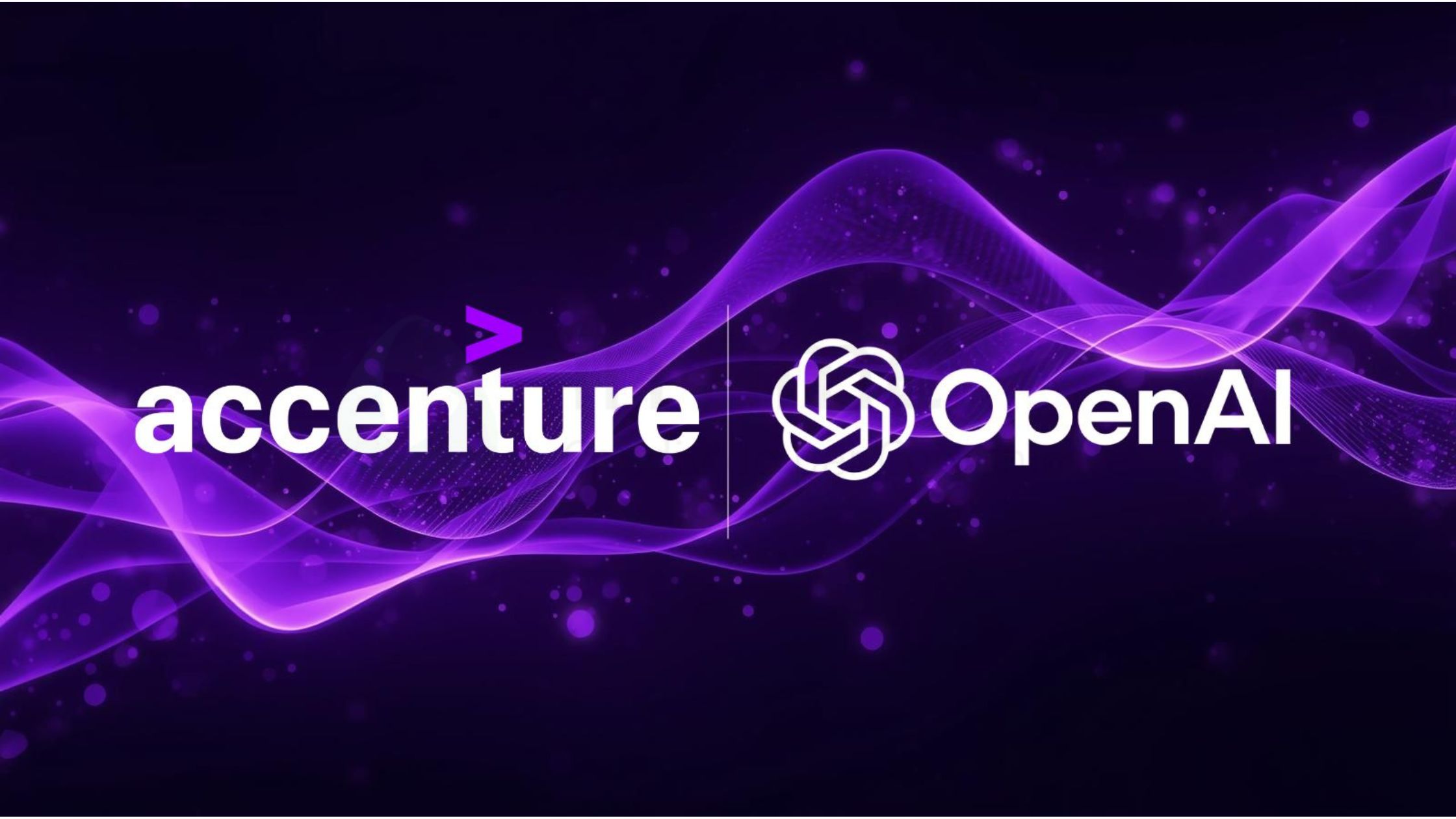
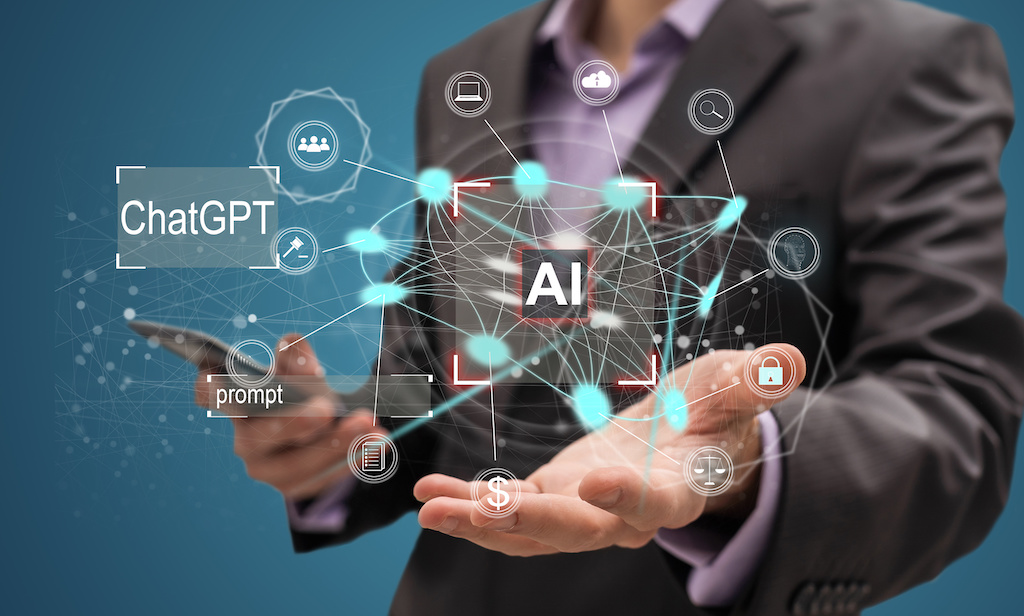









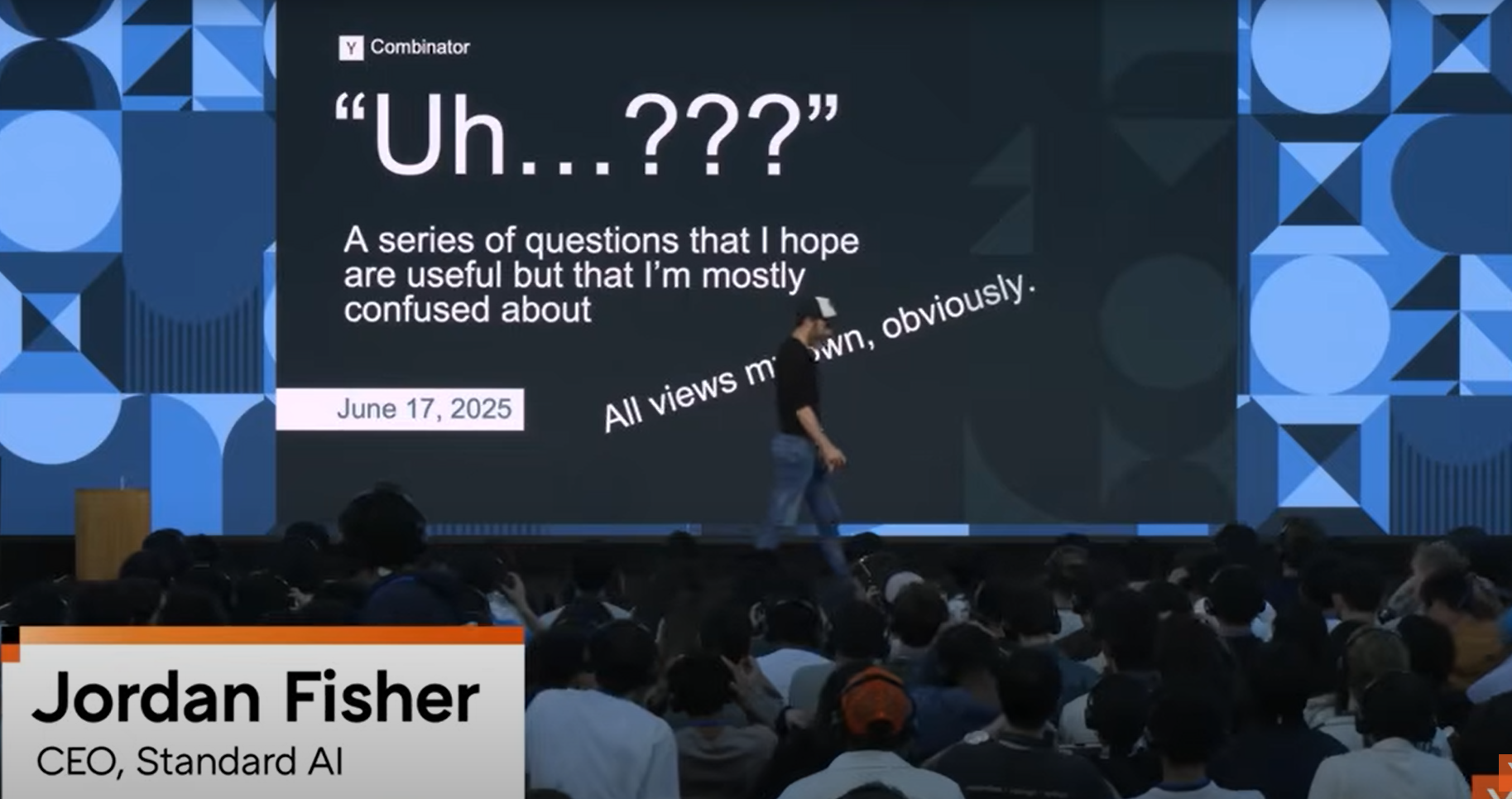










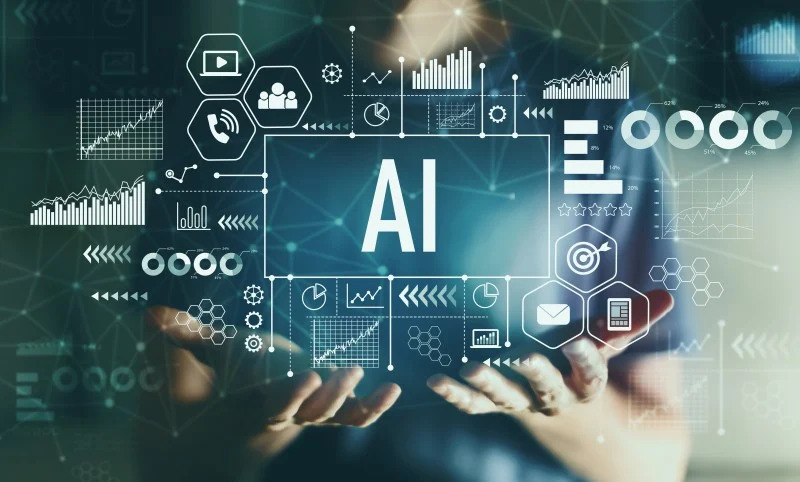









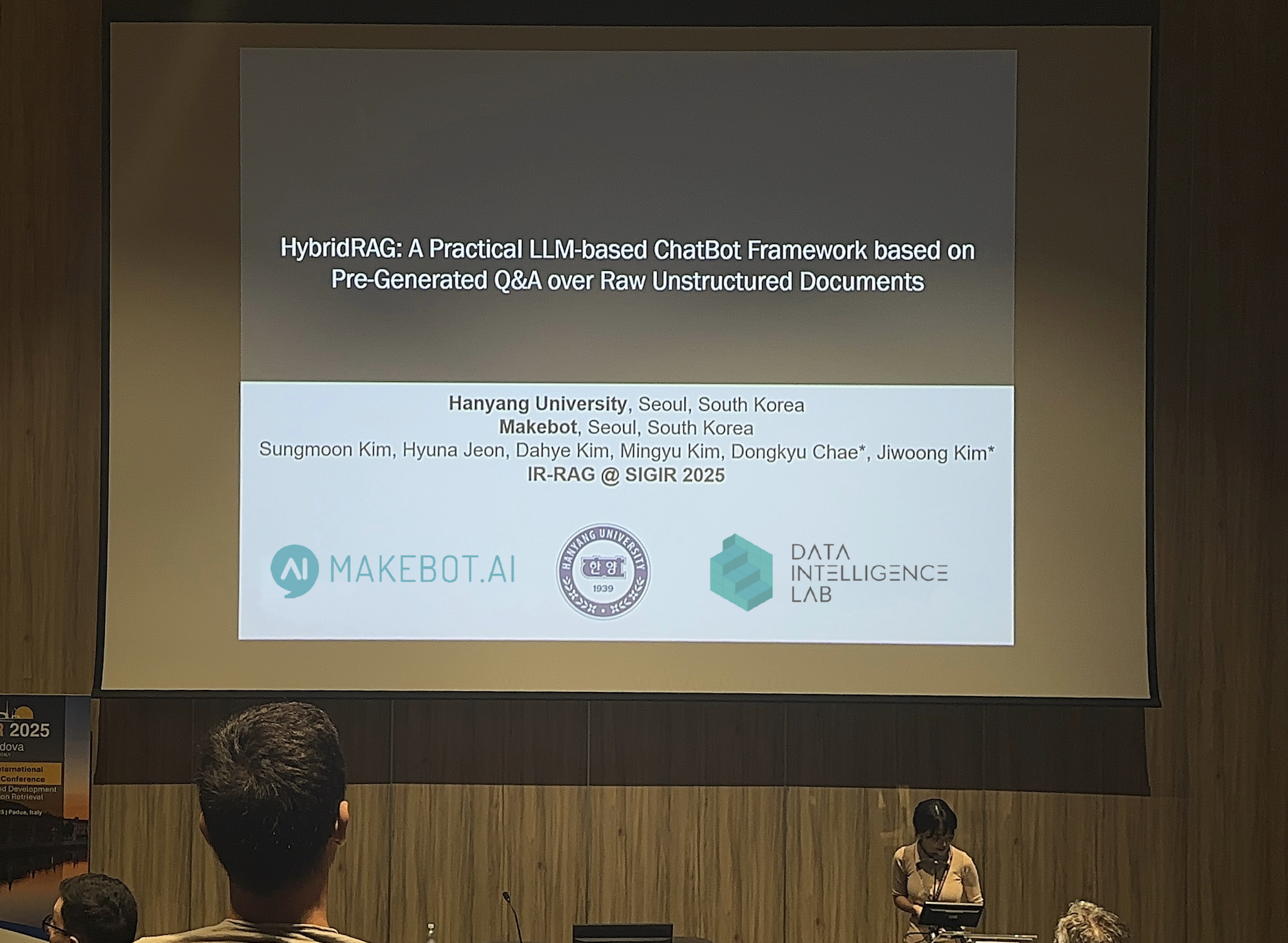









_2.png)


















.jpg)



















